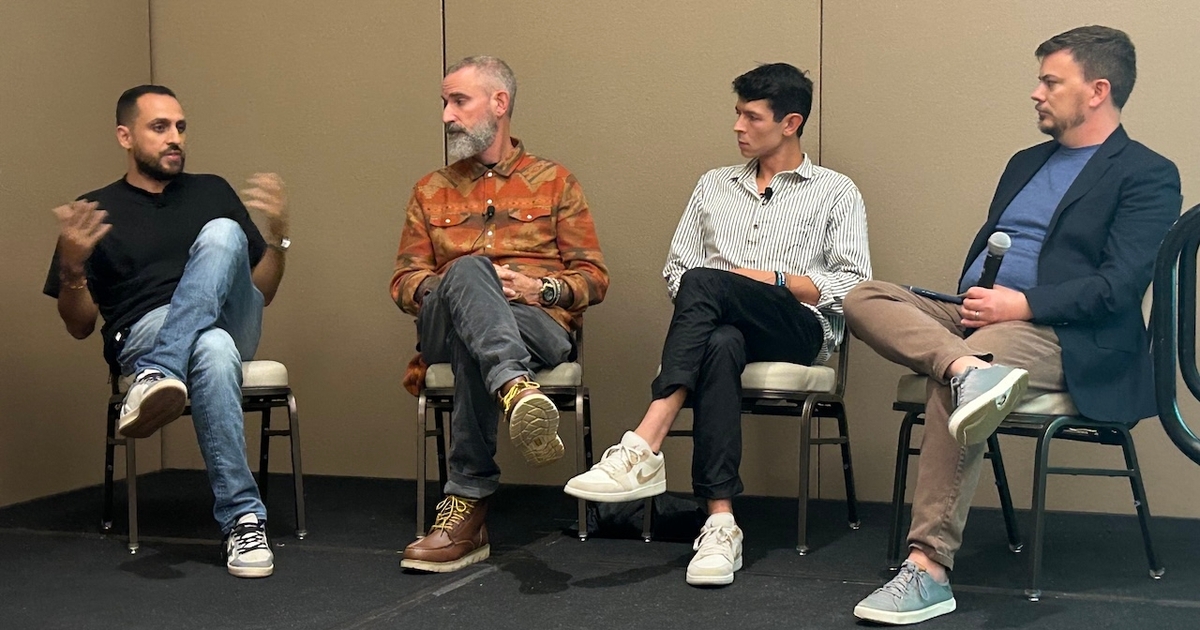
Sound decisions: How to pick the right music for your venue
A restaurateur, hotelier, and sound expert share their perspectives at CREATE: The Event for Emerging Restaurateurs
Bret Thorn
Restaurants spend a great deal of time, energy, and money on their food and drink, of course, and also on décor, but when it comes to music, it’s often an afterthought.
“People spend a lot of time on visuals … but finding the right music a lot of times is overlooked,” said Paul Blair, a Grammy Award winning music producer who has go-written songs with Lady Gaga and contributed to the soundtrack for the film A Star is Born.
“When it’s bad, you notice it. When it’s good, you don’t notice.”
Blair was joined Tommy Ostrom, an asset manager for AJ Capital Partners and former chief of staff of Graduate Hotels, and Otto Othman, co-founder and CEO of Miami-based burger-and-kebab concept PIncho, in a conversation at CREATE: The Conference for Emerging Restaurateurs about the importance of atmosphere in hospitality venues.
Nation’s Restaurant News editor-in-chief Sam Oches kicked off the discussion, sponsored by music curation agency Cassette, by pointing out that restaurants are not just in the business of transactions but in creating experience, and music can be a huge part of that.
Othman said that he looks at a restaurant brand as a human being. He asked himself, if Pincho were a person, what would he listen to.
“If you treat it like a person it has more authenticity,” he said.
But that doesn’t always work, he said. He visualized Pincho as a cool, hip, Miami dude who, naturally, would listen to hip-hop.
“Boy, did that backfire,” he said, because the language used in many hip-hop lyrics isn’t exactly suitable for everyone who walks through the doors.
Blair said that, indeed, the music shouldn’t necessarily be about what you like, but what your customers like.
“Think with intention about what you want people to feel,” he said.
Ostrom added that music choice is situational. Graduate hotels in particular operate in college towns, and the vibe of anticipation when Ohio State’s football team is in town is different from a Tuesday in June, and the music needs to reflect that.
Blair, who also has worked on music curation for Graduate properties, said that during parents weekends it makes sense to play music that they can bond with their kids over — such as songs the parents grew up with that have enjoyed a resurgence in current culture, such as part of a movie score or a meme.
Blair said music sets “the expectation for what the place is, and can make people come for that reason.”
For example, he curated hip-hop music for a ramen restaurant in Chicago.
“People go for the music because there’s no other place in Chicago to hear hip-hop that’s not jam-packed,” he said.
For the Athens, Ga., Graduate hotel, Blair went to different bars in the city to listen to what music they were playing and adjusted the hotel’s soundtrack accordingly. He said every city has a musical identity, but he also wants there to be a unifying identity for all of the properties.
“We do 80% reflecting what we are, and 20% specific to the community,” he said.
Music can also be a motivator for employees. In fact, Othman lets his kitchen staff create their own music.
“They want to listen to completely different music than what we’re playing in dining rooms,” he said, which is fine with him as long as the sound doesn’t drift into the dining rooms.
He added that music is a way to communicate directly with your customers.
“Your brand speaks to the guest via the music. That’s the only time it’s talking to guests,” he said.
“What do you want your brand to say?”
Contact Bret Thorn at [email protected]
Follow him on TikTok and Instagram: @foodwriterdiary




